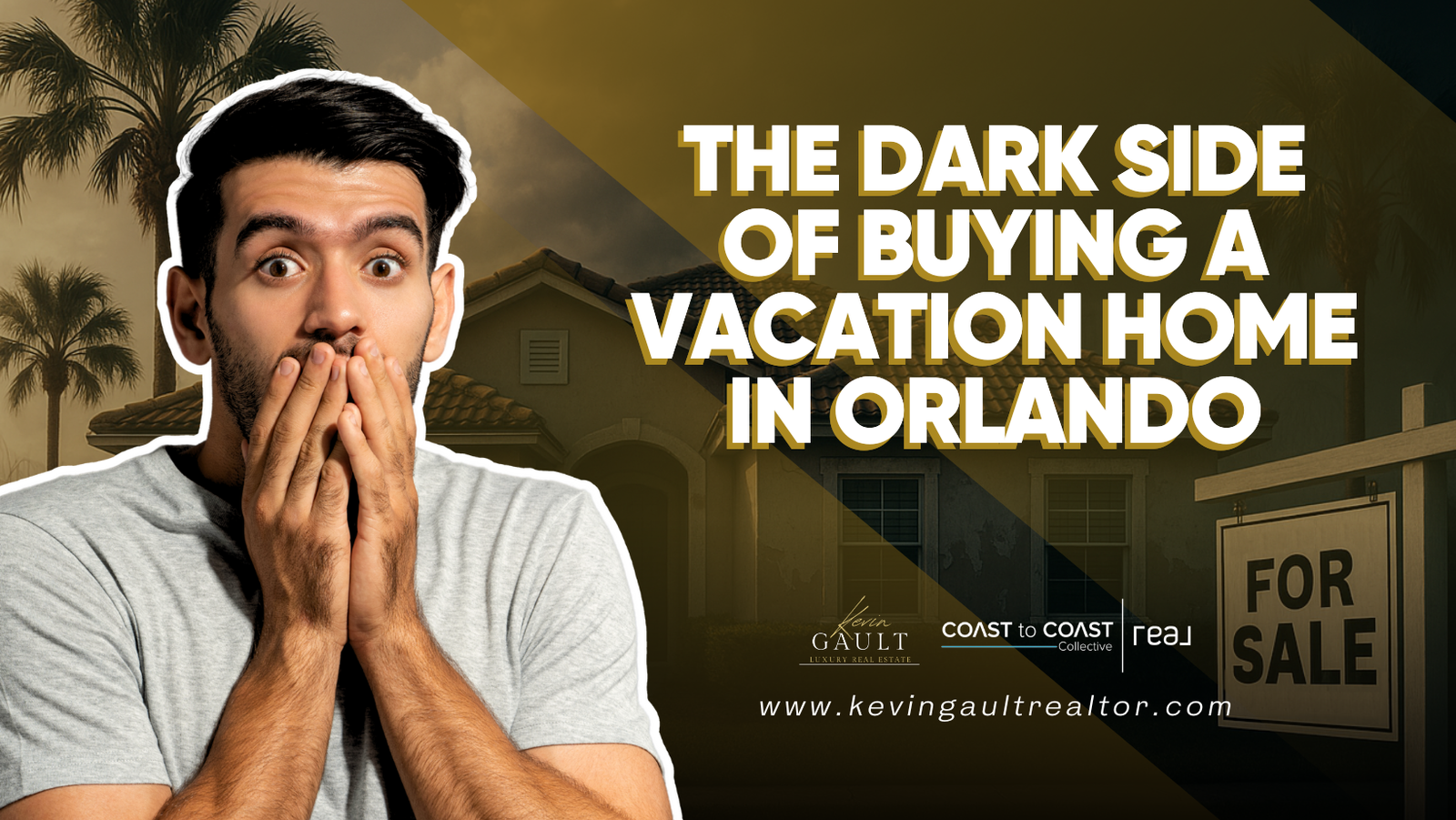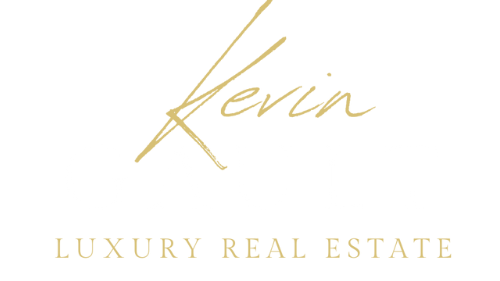
Why Your “Dream Investment” Could Be a Financial Trap (and What to Do Instead)
You’ve seen the ads.
You’ve heard the pitch.
“Buy a second home in sunny Orlando. Rent it out when you’re not using it. Sit back and enjoy passive income.”
Sounds like a dream.
But here’s the truth no one’s telling you:
Buying a vacation home in Orlando is one of the most overrated, financially risky moves you can make in 2025.
Before you write a check, read this. What you’re about to learn could save you tens of thousands, and show you a much smarter way to invest in Orlando real estate.
1. The Hidden Costs That Quietly Drain Your Bank Account
When you buy a vacation home, you’re not just paying the mortgage. You’re stepping into a pile of recurring costs most people never budget for.

Here’s what that looks like on a $400,000 property:
- HOA and Resort Fees: $3,600 to $7,200 per year
Many Orlando communities charge these just for access to pools and common areas. - Maintenance and Repairs: $6,000 to $12,000 annually
Real estate rule of thumb is 1–2% of home value every year. For a $400K home, that’s thousands, minimum. - Property Management Fees: 15% to 40% of gross rental income
Managing guests, cleaners, bookings, and repairs isn’t free, and it adds up fast. - Utilities: $4,800 annually
Florida AC bills alone will test your patience and your wallet. - Short-Term Rental Insurance: $2,000 to $3,000 per year
Standard homeowner policies don’t cut it. You’ll need specialized (and more expensive) coverage. - Property Taxes for Non-Residents: 20% to 28% higher
Florida rewards full-time residents with lower tax rates. You’re penalized if you don’t live here. - CDD Fees (Community Development District): $2,000 to $3,000
These additional fees are common in planned communities and are tacked onto your annual tax bill.
Total estimated annual cost: $34,190
That’s before you make a single dollar in rental income.
2. Rental Income Is Not Guaranteed; It’s a Gamble
Think you’ll cover those costs by renting the home out on Airbnb or Vrbo? Think again.

Orlando is flooded with short-term rentals, and you’re entering a saturated, highly competitive market.
- Over 11,000 active vacation rentals in Orlando
You’re not just competing with homeowners—you’re competing with entire resorts. - Average occupancy rates range from 51% to 73%
And that’s heavily skewed toward holiday seasons. The rest of the year? Prepare for silence. - Rental price wars drive down profit
In off-peak months, owners undercut each other just to get booked. - Regulatory landmines everywhere
Depending on where the property is located (Orlando proper, Kissimmee, Davenport), you’ll face varying permit requirements, rental restrictions, and legal risks. - Some HOAs flat-out ban short-term rentals
You could buy a vacation home, and find out later you’re not legally allowed to rent it out.
Meanwhile, your fixed expenses don’t take a vacation.
3. Property Management Is a Costly Illusion
Hiring a property manager sounds like a hands-off solution. In reality, it’s often the most expensive part of the deal.
- Management fees can eat up 15% to 40% of your rental income
- Some companies charge separate leasing fees, sometimes 100% of the first month’s rent
- Maintenance markups and hidden costs are common
- Poor communication and oversight can tank your guest reviews—hurting your ability to get future bookings
- You’re still responsible for major decisions, emergencies, and legal obligations

The “passive income” dream starts to look a lot like managing a hotel from out of state.
4. The Real ROI? Lower Than You Think
Let’s run a quick reality check.
You spend $400,000 on a vacation home. It costs $34,000+ per year to operate. That means you need to generate at least $3,000 a month in net profit just to reach a modest 8% ROI.
Here’s the issue:
- Most properties don’t generate that kind of return
- Even high-performing rentals often barely cover expenses
- Appreciation in vacation-heavy zones is slower and more volatile
Many owners end up using their property a couple of weeks a year and hope rental income offsets the rest of the cost. That’s not an investment strategy, that’s wishful thinking.
5. The Smarter Strategy: Make Orlando Your Primary Home
Now let’s talk about the better move.
Instead of throwing money at a vacation home that drains you year-round, consider moving to Orlando full-time. It flips the entire equation.

Here’s what changes:
- Lower property taxes
Florida rewards primary residents with up to 28% lower rates. - Homestead exemption
Knock up to $50,000 off your home’s taxable value. - No tourism taxes or short-term rental regulations
You’re not renting to strangers—you’re living in it. - No property management fees or out-of-state hassles
You’re there. You’re in control. - Long-term appreciation in thriving residential communities
Neighborhoods like Lake Nona, Winter Park, and Horizon West are booming. - You’re living where others vacation
The weather. The lifestyle. The access to world-class schools, hospitals, entertainment, and parks—all yours, year-round.
You gain all the perks of vacation living, without the risks and overhead of being a remote landlord.
6. Want to Invest? This Is Still the Better Path
Buying a primary home in Orlando is an investment. It’s a smart, scalable way to build wealth.

- You can refinance or tap into home equity as the property appreciates
- You can convert it into a long-term rental down the line (with far more stability and far fewer regulations)
- You’re building equity while living in a high-demand, low-tax, economically growing region
It’s not just real estate. It’s a financial foundation.
The Bottom Line
Vacation home? Looks good on Instagram. Hurts in real life. Primary home in Orlando? Real value. Real upside. Real lifestyle.
So the next time you see that glossy listing for a “turnkey villa near Disney,” remember this:
- Your mortgage is only the beginning
- “Passive income” is rarely passive
- Vacation homes come with higher risk and lower return
- Living in Orlando full-time is a far better long-term play
Ready to Make a Smart Move?
If you’re serious about making the best real estate decision of your life—let’s talk.
I’ll help you:
- Find the right neighborhood based on your goals
- Understand local tax breaks and incentives
- Build a personalized strategy for buying your dream home
- Avoid costly mistakes that most out-of-state buyers make
Click here to schedule your homebuyer consultation. Let’s turn Orlando into your smart move, not your expensive lesson.
